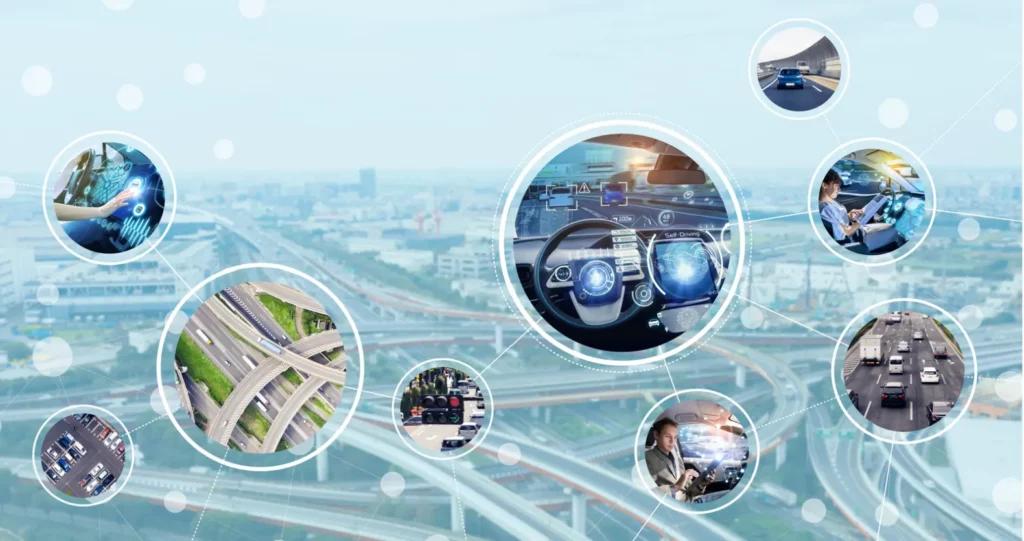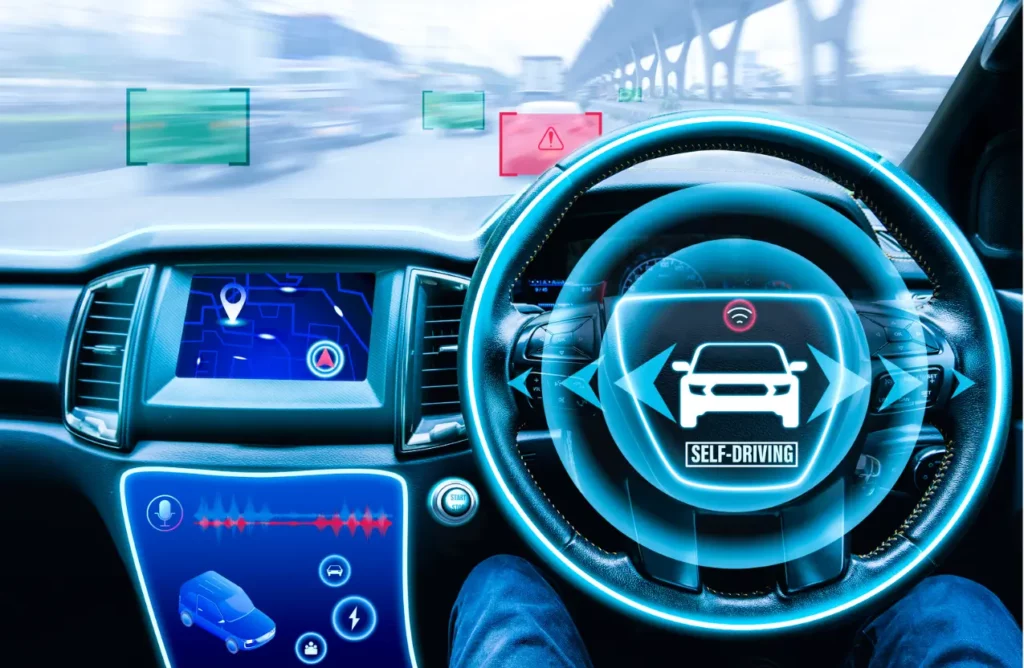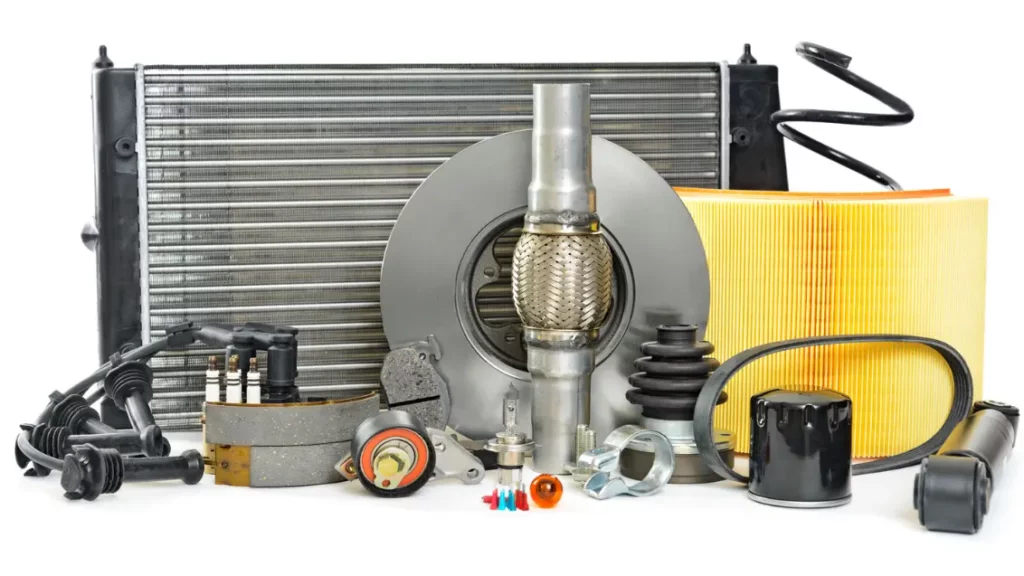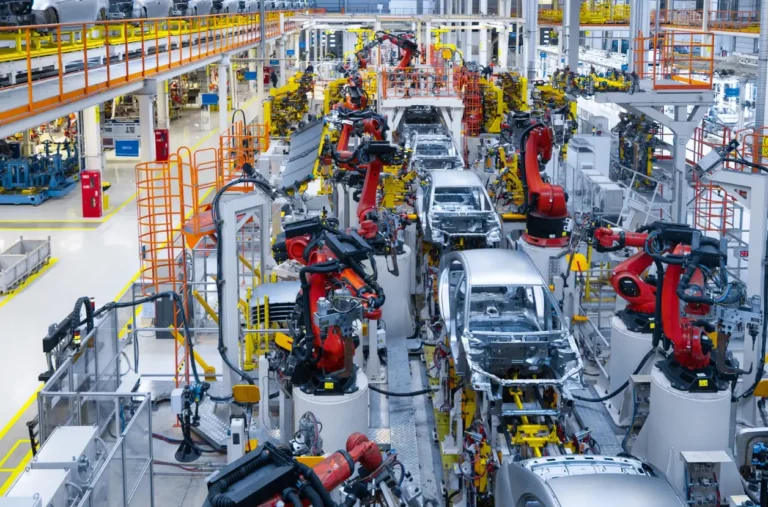Driving Innovation and Efficiency
The automotive industry is accelerating its adoption of Artificial Intelligence (AI), redefining manufacturing processes from assembly lines to finished vehicle quality checks. AI’s integration into automotive manufacturing isn’t just enhancing efficiencies; it’s fundamentally reshaping production strategies, supply chain management, and end-product customization. Here, we explore how AI is steering automotive innovation with real-world examples, showcasing how PeakMet solutions play a pivotal role in this transformative journey.
Revolutionizing Production with AI-Driven Robotics
Automotive plants around the world are employing AI-driven robots to increase production speeds and improve precision in assembly processes. These robots are not only programmed to perform repetitive tasks but are also equipped with machine learning algorithms that allow them to adapt and optimize their actions based on real-time feedback.
Example: Ford Motor Company Ford’s use of co-bots (collaborative robots) in assembly lines helps in tasks that require more precision and flexibility, such as fitting shock absorbers into cars. These AI-enhanced robots work alongside human technicians, increasing productivity and reducing the physical strain on factory workers.
Enhancing Quality Control Through Machine Vision

AI-powered machine vision systems are being used extensively to inspect the quality of automotive components and assembled vehicles. These systems analyze images of parts and assemblies to identify defects that are imperceptible to the human eye.
Example: General Motors General Motors utilizes AI-driven visual inspection systems in their manufacturing process to detect tiny imperfections on metal surfaces. This technology ensures higher standards of quality and durability, significantly reducing the rate of recalls and customer complaints.
Optimizing Supply Chain and Inventory Management
AI algorithms are revolutionizing supply chain logistics within the automotive industry by predicting parts demand more accurately, optimizing inventory levels, and enhancing the efficiency of the supply network.
Example: BMW BMW employs AI to simulate and predict various supply chain scenarios, including supplier issues and logistics bottlenecks. This predictive capability allows BMW to maintain a leaner inventory and reduce costs without risking production delays.
Personalized Vehicle Customization
AI is also transforming how customers can customize their vehicles. AI-powered configuration tools allow customers to visualize and select vehicle features, from paint colors and wheel designs to interior finishes, in a highly interactive and immersive manner.

Example: Tesla Tesla’s online configuration tool uses AI to guide customers through the customization process, dynamically adjusting pricing and delivery times based on current production schedules and parts availability. This system enhances customer satisfaction by providing transparent and customized purchasing options.
PeakMet’s Role in Automotive AI Integration
PeakMet collaborates with automotive manufacturers to integrate AI solutions across production, quality control, supply chain management, and customer interaction processes. PeakMet’s platforms offer robust data analytics capabilities, real-time monitoring, and predictive maintenance solutions that are essential for modern automotive manufacturing environments.
Driving Towards a Sustainable Future
AI integration is also pivotal in advancing the automotive industry’s sustainability goals. AI optimizes energy use in production facilities and helps in designing vehicles that are more energy-efficient and less polluting.
Example: Volkswagen Volkswagen uses AI to improve the energy efficiency of its electric vehicles. By analyzing data from vehicle sensors and external conditions, AI helps optimize battery usage and driving modes, extending the range of their EVs.
Navigating Challenges and Ethical Considerations
The integration of AI in automotive manufacturing must navigate challenges such as data security, the ethical use of AI, and potential job displacement concerns. Ensuring transparency in AI decisions and maintaining an inclusive approach towards workforce adaptation are vital for sustainable integration.
The Road Ahead
As AI continues to evolve, its integration into automotive manufacturing promises even more revolutionary changes. With adaptive AI technologies, enhanced robotics, and smarter data analytics, the future of automotive manufacturing looks set to be safer, more efficient, and more environmentally friendly, with PeakMet driving many of these advancements.



